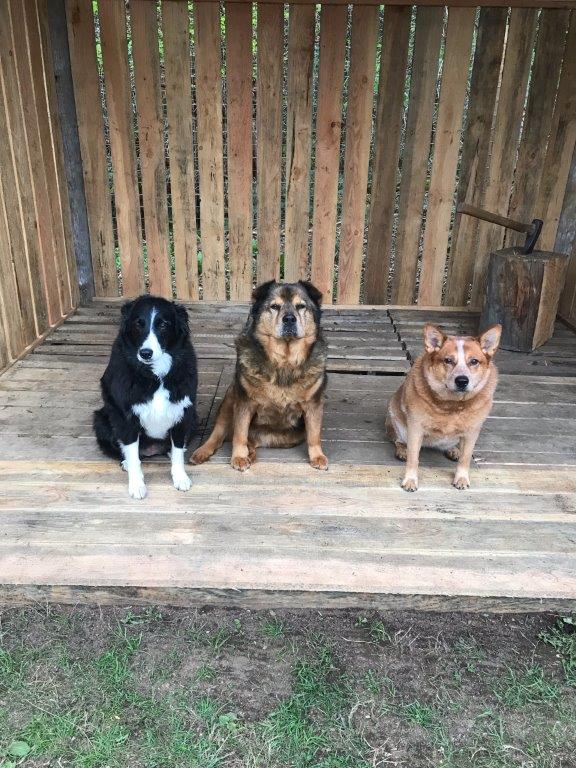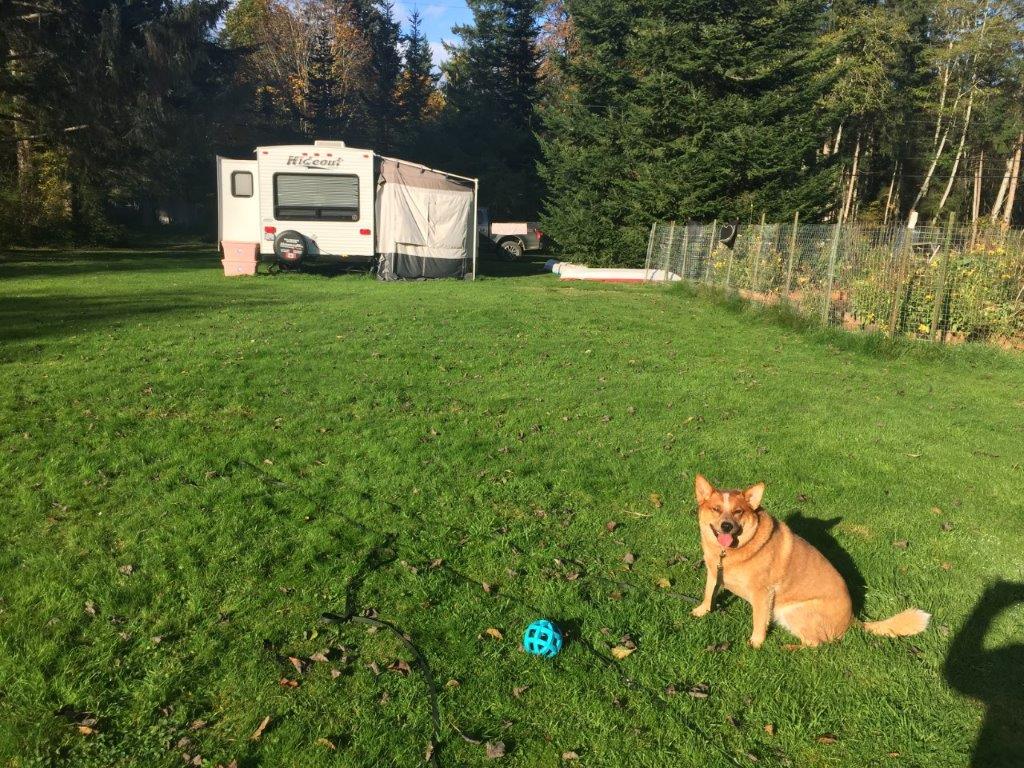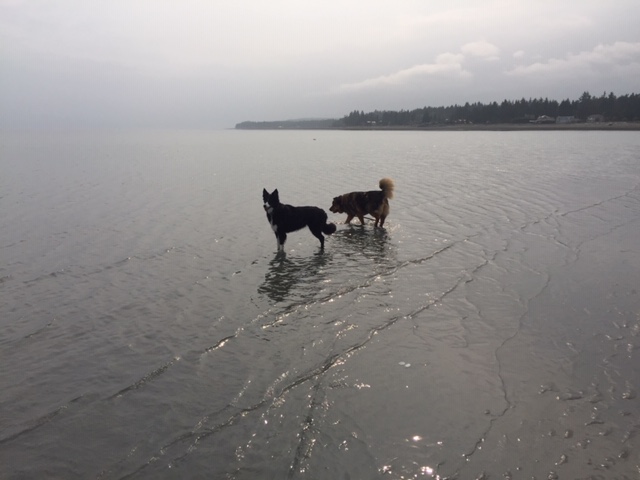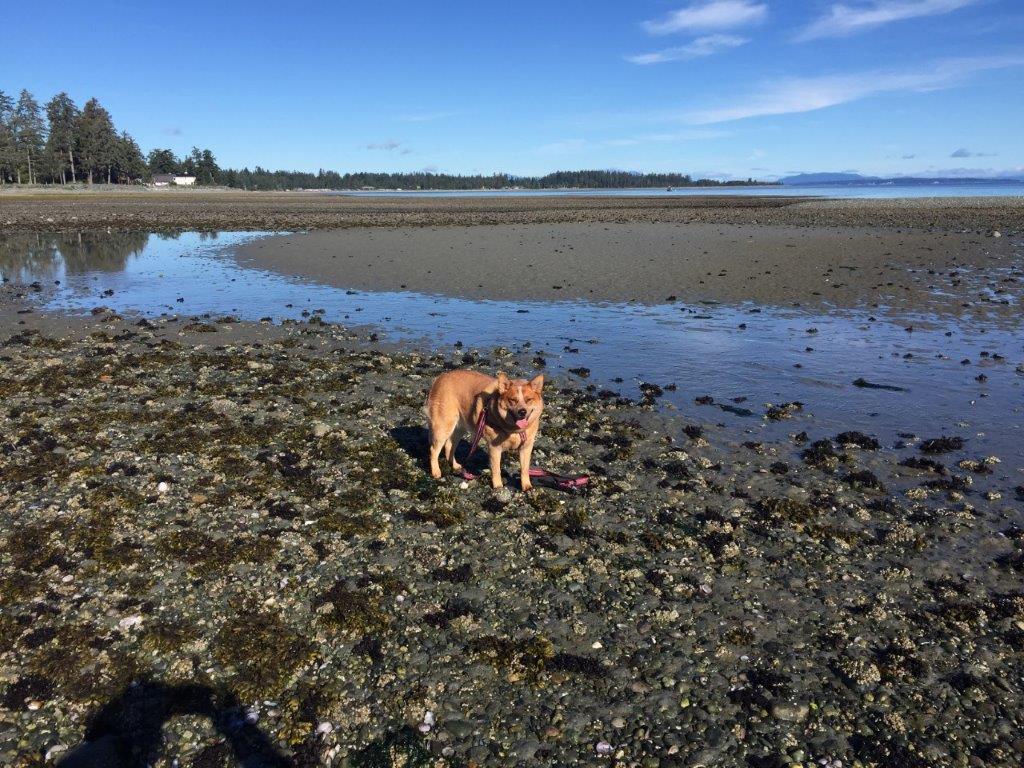Barks Blog
New Beginnings
This article relates the impact the pandemic had on one professional dog trainer’s business and how it empowered her to make life-changing decisions about her future – both personally and professionally

By Gail Radtke
In April 2020, right at the beginning of the pandemic, I closed my dog training facility that I had been operating in Pitt Meadows, British Columbia, and moved all the equipment into my garage.
Like so many other people at the time I was unsure, unprepared, and overwhelmed, but knew I had to make fast decisions when it came to my business. So I started using Zoom to conduct virtual classes with my clients from my garage.
This was during the initial stages of the pandemic when we were all experiencing the first lockdown. It was a wonderful way to keep connected at a time when people were staying home with much uncertainty around them, and I know that, for me personally, it helped make the emotional isolation more tolerable.
Dog Owners Less Depressed than Non-Dog Owners
In December 2021, researchers conducted a study to investigate whether pet dogs offered their owners social support and contributed to better well-being during the pandemic. Perhaps unsurprisingly, the results show that dog owners were significantly less depressed than non-pet owners (Martin et al., 2021).
What I didn’t share in my last article, Surviving the Storm (BARKS from the Guild, July 2020, pp.20-22), was that, at that time, my home of 20 years was up for sale and my life was about to be turned upside down.
For many years my dogs (aka the girls) have enjoyed a certain lifestyle that includes living on acreage, going to the training facility with me, and having family and friends around. My parents had lived on my property in their own mobile home for 13 years and the girls visited them several times a day, especially at mealtimes.
The girls had been adjusting to the routine of me being home all the time and working in the garage and I honestly think they just enjoyed having me with them all the time, just like so many other dogs enjoyed having their guardians working from home, going for extra walks, and not dealing with any physical separation.
But in June 2020 I accepted an offer on my home with a move-out date of August 30. The chaos was about to begin!
Pandemic Puppies
Around this time, the wave of Pandemic Puppies was just beginning. According to Drolet (2020), the Toronto Humane Society reported that 71 dogs were placed in foster homes in February 2020 and another 141 dogs in March 2020 after much of the city went into isolation.
Adoptions from shelters often tended to be at a high rate during the pandemic but we are now starting to see them slow down again. Unfortunately, dogs are sometimes being relinquished as people’s lives go back to pre-pandemic routines. The kids are back in school and all the extra time that was spent on canine care and activities isn’t always as available as before.
Meanwhile, socializing dogs has been quite difficult during the past two years, especially as in-person training classes have been restricted in many cases.
It is only now that we are starting to see behavioral issues in some of the dogs that were brought home during the restricted phases of the pandemic.
Canine Separation Anxiety
So many people and dogs have been affected by the abrupt changes that the pandemic brought. The most common behavioral changes reported have involved animals becoming more attached to their owners (Martinez-Caja et al., 2022).
A big issue people may find themselves dealing with is dogs displaying separation anxiety now their guardians are leaving the house again. Some dogs have literally not been alone for two years now and, depending on the age they were brought into the family, may never have experienced being alone at all.
Closer to home, my girls were about to experience their whole lives changing and I would, of course, be doing everything I could to stabilize the changes for them.
My oldest dog, Lanie, had never lived anywhere except for the home we were in, along with her sister Gertrude (see Great Expectations, BARKS from the Guild, September 2015, pp.34-35) Both of them were puppies when I got them. Trixie, on the other hand, was 3 when she came to live with me, and I think she did better with the upheaval.
During the chaotic packing up of my home, the girls were actually fine and I didn’t really notice any behavioral changes. I did, however, notice them responding to my stress levels, as it was a very emotional time for me.
Studies in emotional contagion, “a primitive form of empathy,” indicate that dogs have acquired “human-like communication skills and, likely as a result of the domestication process.” (Maki et al., 2019). And so my girls were definitely tuned into my emotional state at the time.
During these months, I had also been looking for a suitable home to move into and, as you know, finding one that can accommodate three big dogs isn’t easy and I was having difficulties finding one. By early August, I was getting nervous as I still couldn’t secure a rental home that would allow my three dogs. But I had to come up with something as the closure date on my home was drawing closer.
Moving with Dogs

Now for my brilliant idea! I bought a 26-foot trailer. This way I had a roof over our heads while I searched for our permanent home.
I was very fortunate to have a friend who invited me to park my trailer on her property, which was on Vancouver Island right beside Miracle Beach Provincial Park. I couldn’t have asked for a more beautiful location.
On August 30, then, I loaded up the girls into the pickup, and with the help of a friend, we drove from Mission, British Columbia and took the ferry to Vancouver Island.
Having a place to stay with the girls was my priority and although the trailer was a small accommodation for us four, we were together.
Our first night staying in it went well and the quiet silence of area was soothing. The ocean was only a block away and Black Creek was also close by. It was ideal for us to be surrounded by tranquil nature after the stress of the past few months.
For the girls, the adjustment began abruptly and on our first morning, their routine was vastly different than what they were accustomed to.
For a start, the property the trailer was parked at wasn’t fenced, so I had prepared by having three long leashes on hand to be able to take the girls out for bathroom breaks.
Out of my three dogs, I would only allow Trixie to be off-leash due to her excellent recall. Gertie and Lanie, although they both have foundation training, their recall isn’t always 100% and I wouldn’t risk being in a new place with so many new sights and sounds to tempt them. Having one of them get lost was not a risk I was willing to take. So for the next two months, rain or shine, early morning and middle of the night, off we went for regular long walks.
Dogs on the Beach

We were so fortunate to be staying right beside the entrance to Miracle Beach Provincial Park. The park hosts miles of beautiful trails through the forest that all lead out to the ocean.
I was able to step out of the trailer and walk the girls in the most beautiful surroundings, often without seeing another person. We were minutes away from some of the most beautiful beaches, including Saratoga Beach. The weather at the beginning of September in the area was still very warm and fortunately, the trailer had an air conditioner.
Trixie had lots of experience in and around water due to her previous job at Rocky Point Park in Port Moody, British Columbia where she was hired to encourage geese to leave the park area as part of a humane goose management project (see Goose Buster Trixie Mae, BARKS from the Guild, November 2019, pp. 25-27).
Lanie hadn’t been to the beach since her younger years and Gertie had never been at all. But we all took advantage of being so close to the water and our daily walks often ended up at one of the beach areas.
The girls were thriving in our new novel environment. I hadn’t expected them to do so well living in such small quarters and not having the freedom to roam as they had been used to at our previous home.
But we were walking several times a day and playing outside together, while our evenings were quiet and peaceful. I really felt connected with my dogs on a much deeper level, since they were pretty much my only companions during this time of change.
North Vancouver Island is drenched with natural beauty and if you enjoy outdoor activities, the ocean, lakes, and quiet tranquil neighbourhoods, then you would fall in the love with it as I did. After everything in my life literally changing in such an abrupt manner, I didn’t want to leave the peace that myself and the girls were experiencing.
So I made the decision that we would have a new beginning and start over on Vancouver Island in the Campbell River area. I know it was meant to be because I found the perfect home for us in a short period of time and everything fell into place.
The house and yard were perfect for the dogs and even for me. Together we had found a place that felt like home.
Fast forward to the present, and the dogs are thriving. The first thing I had done at the house was to fence the yard, so the girls have their freedom to roam and I know it is safe and secure.

Dog- and Human-Reactive Dog
My one girl Gertrude Mae (see Great Expectations, BARKS from the Guild, September 2015, pp.34-35) is dog- and human-reactive. This has been my greatest challenge and one of my main priorities has been to ensure that her quality of life is not affected by her inability to accept the unknown.
It was difficult for her to leave family and known friends behind, and for a period of time, I was her only human companion. But she has thrived with the new changes in her life and has made several new human friends.
For those of you who have a reactive dog in your life, you will understand the small bubble you can end up in with a dog who has limited interaction capabilities. I was fortunate to have met people who could be patient with the process needed for introductions with Gertie.
Not every introduction was successful, but a handful were, and that is more than I ever imagined for Gertie. The more she continues to have her successes, the easier it has been for me to feel less anxious about her behavior.
Meanwhile, our new veterinary office has been amazing with Gertie from the very beginning. The anxiety of having her go to a new clinic with people who didn’t know her and, perhaps, understand her was such a concern, but the staff at Campbell River Veterinary Hospital have made her visits as stress-free as possible – not only for Gertie, but also for me.
I know that she is handled with kindness, understanding, and patience by the staff and veterinarians.
Back to Training
As the pandemic restrictions started to shift, I felt that perhaps it was time to look at getting back to in-person dog training. By this time, two years had passed since I closed my original training facility in Pitt Meadows.
I connected with a trainer in an area called Union Bay, not too far from where I live. Lisa Dawn, the owner and operator of Country Canine Care and is a certified dog trainer and, of course, a force-free trainer. I was so grateful to connect with a likeminded trainer who shared the same principals and beliefs.
Lisa hosted my first Dogsafe Canine First Aid class in two years at her facility; getting back instructing again has been the final piece to my new beginning. There’s a saying, “Sometimes things have to fall apart so better things can fall together.”
I couldn’t believe that more when I look around me now and see how healthy and happy my dogs are as well as the new opportunities that lie ahead for me and my career in dog training.
Only now are some of us getting back on track. Many of us are still navigating the new normal. I honestly don’t know what I would have done without the companionship of my three girls – it was the drive to find them a safe and happy home which led us to our wonderful new beginnings.
References
Drolet, M. (2020, May 31). The New Reality: The appeal of the pandemic puppy. Global News
Maki, K., Takatomi, K., Toshitaka, Y., Koichi, F., Kensaku, N., Kazushi, I., Kazutaka, M., Miho, N., & Takefumi , K. (2019). Emotional Contagion From Humans to Dogs Is Facilitated by Duration of Ownership. Frontiers in Psychology 10
Martin, F., Bachert, K.E., Snow, L., Tu, H-W., Belahbib, J., & Lyn, S.A. (2021). Depression, anxiety, and happiness in dog owners and potential dog owners during the COVID-19 pandemic in the United States. PLoS ONE 16(12): e0260676
Martinez-Caja, A.M., De Herdt, V., Enders Slegers, M.J., & Moons, C.P.H. (2022). Pets and their owners during the first COVID-19 lockdown period: Perceived changes in routines and emotions – An exploratory study. Journal of Veterinary Behavior 48 86-91
Resources
Radtke. G. (2015, September). Great Expectations. BARKS from the Guild (14) 34-35
Radtke. G. (2019, November). Goose Buster Trixie Mae. BARKS from the Guild (39) 25-27
Radtke. G. (2020, July). Surviving the Storm. BARKS from the Guild (43) 20-22
Gail Radtke CPDT is a retired correctional supervisor and former instructor of the Justice Institute of British Columbia, Canada. Gail has combined her passion for dogs and teaching and is a Family Paws Parent Education presenter and has recently completed her DipCBST. She is the owner and operator of Cedar Valley K9 in Campbell River, British Columbia, Canada.

